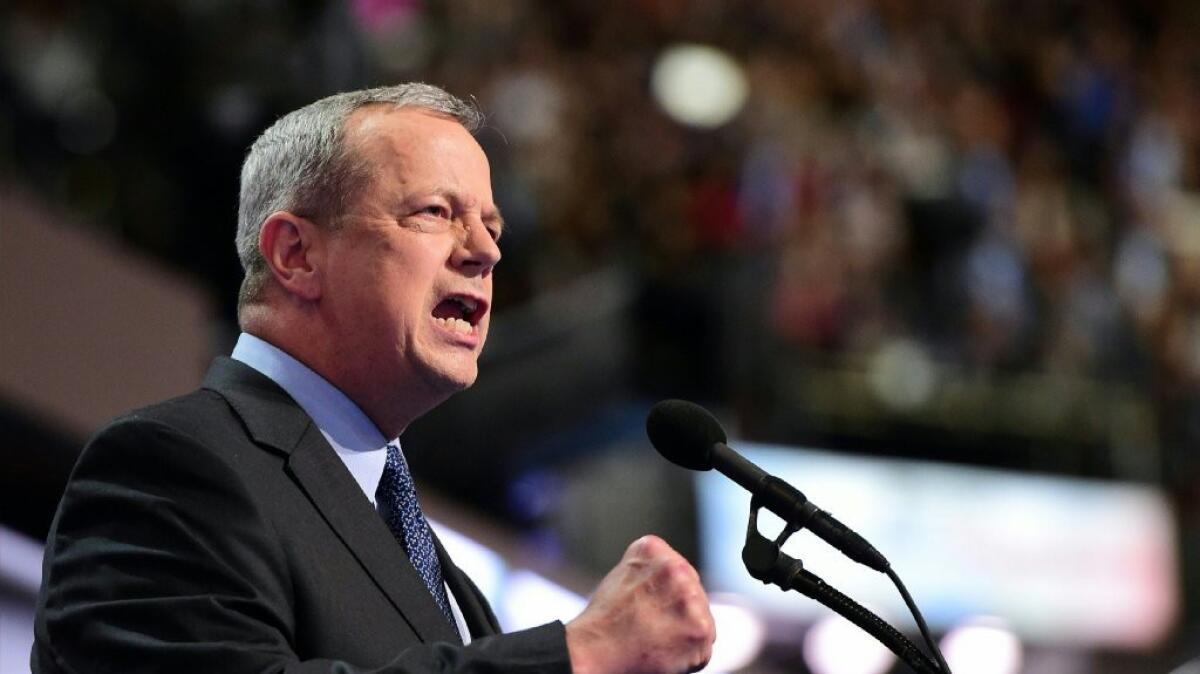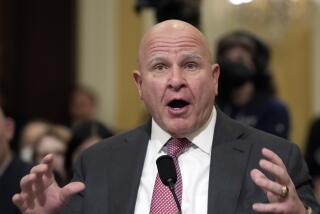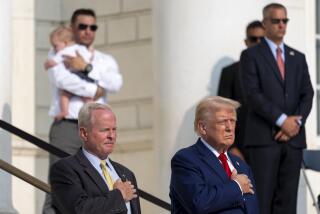Opinion: Is it wrong for retired military brass to salute Clinton or Trump?

Hillary Clinton has received the vocal endorsement of some retired generals. Their support is a political coup for Clinton, but does it also smack of the other sort of coup – the sort plotted by a renegade Joint Chiefs of Staff in the political thriller “Seven Days in May”?
You’d think so, given some of the raised eyebrows that have greeted Clinton’s conquest of the ranks of retired military brass.
The most dramatic example of was the rousing speech delivered at the Democratic National Convention by retired Marine Corps Gen. John Allen, who told the delegates: “I tell you without any hesitation or reservation that Hillary Clinton will be exactly – exactly! – the kind of commander in chief America needs.”
The military parade has continued. This week Clinton was endorsed by two retired four-star generals: Bob Sennewald, former commanding general of the U.S. Army Forces Command, and David Maddox, former commander in chief of the U.S. Army-Europe.
The embrace of Clinton by retired generals is unsettling for some Democrats – particularly former supporters of Sen. Bernie Sanders – because it seems to confirm her reputation as a defense hawk. But you also hear complaints that in endorsing Clinton the ex-generals have violated a taboo against military involvement in electoral politics.
That argument is also made about the prominent retired general who supports Donald Trump, Army Lt. Gen. Michael Flynn. He’s the man who encouraged delegates at the Republican convention when they shouted, “Lock her up!” in reference to Clinton.
In a column earlier this summer in Foreign Policy, Peter Feaver wrote: “Retired senior military officers should not let political parties trade on their service in uniform by becoming high-profile partisan endorsers of presidential candidates.”
Why not? Because “when they speak as ‘retired General So-and-So,’ they appear to be speaking for the military. They are cloaking themselves in the extraordinarily high degree of respect that the American public accords to the uniformed military.”
(Feaver also faulted Allen for addressing his remarks, among others, to “every American in uniform,” which is a different sort of objection. An impressionable young service member might be influenced by an exhortation from a retired general, but I’m skeptical.)
Retired Adm. Michael Mullen, a former chairman of the Joint Chiefs of Staff, offered a similar view in a written statement provided to the Washington Post for a story it did about Flynn. Mullen argued that “for retired senior officers to take leading and vocal roles as clearly partisan figures is a violation of the ethos and professionalism of apolitical military service.”
Really? Why would anyone assume that a retired general is “speaking for the military” any more than a retired secretary of State is speaking for the State Department or a retired Supreme Court justice is speaking for the court?
And if a former general making an endorsement in a presidential race commits a transgression of the civilian-military divide, what about a retired general who actually runs for president (Alexander Haig, Wesley Clark) or manages to be elected (Dwight Eisenhower)?
Civilian control of the military is a sacred principle of American democracy, but so is the right of private citizens to express themselves about politics. That includes former generals, who ought to be as free to draw on their experience in supporting the candidate of their choice as any other citizen.
Follow the Opinion section on Twitter @latimesopinion and Facebook
More to Read
A cure for the common opinion
Get thought-provoking perspectives with our weekly newsletter.
You may occasionally receive promotional content from the Los Angeles Times.











